Faculty Bookshelf

Life After Life by Kate Atkinson
As a compliment, it takes a while for this work to make sense. Terrific writing develops the tale of a woman living through events in England during WWII, but from a unique perspective. That’s it, no spoilers, just read this excellent book. Recommended by Joe Skovira

The Martian by Andy Weir
The movie adaptation is great but the book has so much more detail! You will be working out the survival puzzles along with Mark Watney, checking the math as you go. Make sure you start on a Friday and have a free weekend because you will just need to see how this tale plays out. Recommended by Joe Skovira
Station Eleven by Emily St. John Mandel
The end of civilization, a traveling acting troupe bringing culture to the wasteland, and a preserved graphic novel tying the story and characters together. An engaging story of the human condition in good and terrible situations. Recommended by Joe Skovira
Soul of a New Machine by Tracy Kidder
A classic and very accessible read for anyone interested in computer systems. I love how Kidder's narrative makes building a new machine into an amazing adventure, because that is exactly what it is. The technology and management style in the book are obviously dated. However, I read this book as a first-year undergraduate, and it is one of the reasons I was excited to explore computer engineering. Recommended by Christopher Batten
The Supermen by Charles J. Murray
Seymour Cray is one of the great computer architects, and the CRAY series of supercomputers are case studies in aggressively integrating technology, packaging, cooling, interconnect, and processing. Murray captures the drama of a small startup taking on larger established companies, but also the importance of taking both technical and management risks. Recommended by Christopher Batten
Steve Jobs by Walter Isaacson
I find Steve Jobs' passion for detail, even details that no one will ever see, inspiring. While "perfect is the enemy of good", good enough is the enemy of greatness. I send this quote from Steve Jobs to all of my graduate students: "Your work is going to fill a large part of your life, and the only way to be truly satisfied is to do what you believe is great work. And the only way to do great work is to love what you do. If you haven't found it yet, keep looking. Don't settle. As with all matters of the heart, you'll know when you find it." To truly understand this quote, you need to read this book. Recommended by Christopher Batten
The Innovators by Walter Isaacson
An ambitious book that traces the roots of our modern information society by weaving together the stories of the visionaries, engineers, scientists, programmers, and entrepreneurs behind the transistor, the computer, and the internet. An engaging way to learn computing history, but I also really like one of the central themes of the book: that true innovation in computing comes not from a lone genius toiling away in isolation, but instead from collaborative teams with a diverse mix of strengths and weaknesses. Recommended by Christopher Batten

Getting Things Done by David Allen
Before I read this book, my life was a mess of to do lists, reminders, and notes. Reading this book helped me understand how to truly organize my life, reduce stress, and be more productive. It is full of helpful methods that can be incrementally adopted, until you feel like you have more control over both your professional and personal life. A must read for any modern engineer. Recommended by Christopher Batten

The Poisonwood Bible by Barbara Kingsolver
One of my very favorite books is the Poisonwood Bible. It's about a guy who drags his family to the Belgian Congo to be missionaries. I'm not entirely sure why this speaks to me, but it is beautifully written. It certainly warns against both inflexibility and blindly letting others make your decisions for you, and for anyone who wants to learn a little about the history of the Congo, it's a very interesting read. Recommended by Alyssa Apsel

People of the Book by Geraldine Brooks
My other favorite is People of the Book. It follows an illuminated manuscript, a haggadah, through centuries and all the people who come in contact with it. It is a brilliant walk through 500 years of history and one of those books that is impossible to put down. Recommended by Alyssa Apsel

Twenty Love Poems and a Song of Despair by Pablo Neruda
I enjoy reading nearly anything by Pablo Neruda. He writes simply, yet forcefully, and is able to find the beautiful in the ordinary. The best example of this is one of his earliest collection of poems: Twenty Love Poems and a Song of Despair. Recommended by Eilyan Bitar
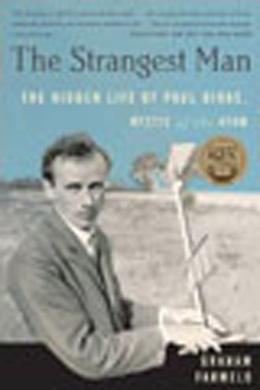
The Strangest Man by Graham Farmelo
A deeply personal biography of Paul Dirac, one of the greatest physicists whose contributions permeate and guide all of quantum and particle physics. Dirac's education started as an Electrical Engineer - something ECEs should never forget! Farmelo does an excellent job weaving a delightful story of how Dirac's family relationships in his childhood affected his extreme reserved nature, how beauty of mathematics and physics was an almost religious belief to Dirac - which made his persevere and predict the existence of positrons - that fell out of his equations. And how Feynman's path integral approach, and the discovery of the zoo of particle physics - from quarks to Higgs Bosons - have all followed Dirac's footsteps. Recommended by Debdeep Jena

The Idea Factory by Jon Gertner
Jon Gertner's delightful account of the wealth of ideas that shape the modern information age were born at Bell Labs. In addition to the well-researched science, which I thoroughly enjoyed, he argues about why the Bell Labs administration spearheaded by Mervin Kelly was so effective in turning beautiful science into profits for the organization. Bell Labs was one of my dream jobs when I came to the U.S., and reading this book confirmed the dream was worth it! Recommended by Debdeep Jena

Shantaram by Gregory David Roberts
An Australian convict escapes into the abyss of Bombay, where he discovers life, love, and the essence of humanity. The autobiographical novel is a beautiful manifesto to the beauty and reason hidden under layers of chaos in Indian cities and in Indian culture. But the message is universal - and don't be fooled by the length of the novel - you will wish it did not end! Recommended by Debdeep Jena
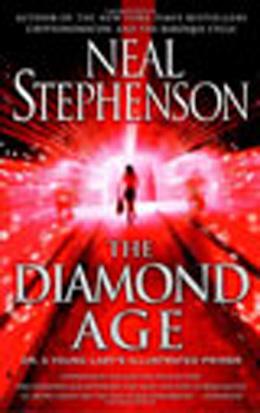
The Diamond Age by Neil Stephenson
This is a fast moving technical story that incorporates really cool applications of nanotechnology, in particular MEMS-based devices that impact just about everything we do today. The book is 20 years old and already some of his projections are becoming reality. Recommended by Clif Pollock
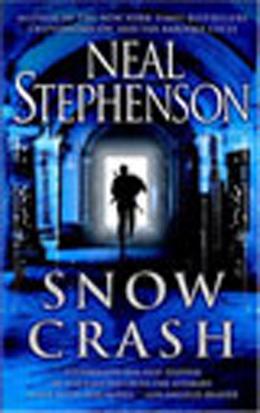
Snow Crash by Neil Stephenson
This book looks at the digital side of the future. “Information” has become the major product of most industry and few people (who are mostly ECE’s) manage to stay in physical reality. Stephenson is a former programmer, so his story is realistic and technically interesting. His future has robotic Rat Things that serves as guards, and “The Gipper”, which is the colloquial name for quadrillion dollar bill, small change in that hyper-inflated time. Someone like me who remembers the budget debates of the 1980s will find this amusing. Recommended by Clif Pollock

Script of the The Big Lebowski by Ethan Coen
I enjoyed the script much more than the movie. The continuity was better and motivations more obvious. A very similar story line is Inherent Vice, a Pynchon novel which is not terminally paranoid. Recommended by Bruce Land
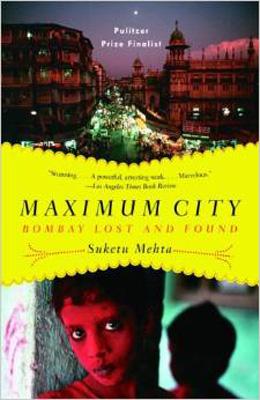
Maximum City: Bombay Lost and Found by Suketu Mehta
This book is a description of of a huge and complex urban environment from the view point of a person who had live there and in London. A fascinating read. Recommended by Bruce Land

Sacred Games by Vikram Chandra
A cops-and-robbers story in Mumbai, showing the complexity of society in a big city. Recommended by Bruce Land
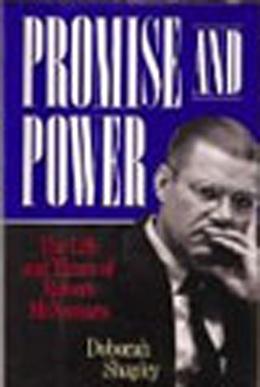
Promise and Power: The Life and Times of Robert McNamara by Deborah Shapley
This book offers a powerful warning about what can happen when one insists upon quantifying the unquantifiable. A useful lesson for today, as we come to rely more and more on objective metrics to measure progress in research, education, and so much else. More complete and nuanced than the better-known documentary "The Fog of War: Eleven Lessons from the Life of Robert S. McNamara." Recommended by Aaron Wagner
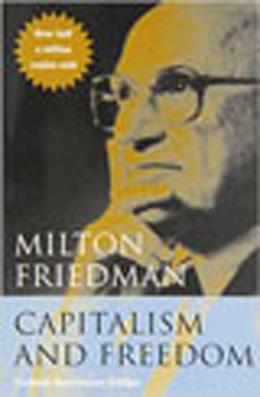
Capitalism and Freedom by Milton Friedman
Milton Friedman is the most lucid persuasive writer I've found. You may not agree with all of his conclusions (I certainly don't!) but after reading him you will probably find that you write, and even think, more clearly (I certainly did!). Recommended by Aaron Wagner

How the Laser Happened: Adventures of a Scientist by Charles H. Townes
I usually steer clear of autobiography, but this is a fun peak into the glory days of physics and electrical engineering. Townes makes a strong case for fundamental research, but he also, perhaps unintentionally, illustrates how much has changed since the days when major discoveries in these disciplines seemed to be hiding under every rock. Recommended by Aaron Wagner
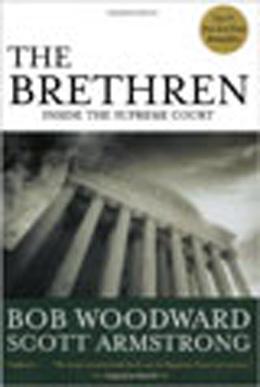
The Brethren: Inside the Supreme Court by Bob Woodward and Scott Armstrong
Who could imagine a page-turner about the Supreme Court? An engaging account of the 1970's court, especially the transition from Earl Warren to Warren Burger as Chief Justice, illustrating the human side of this most impersonal institution. I couldn't put it down. Recommended by Aaron Wagner
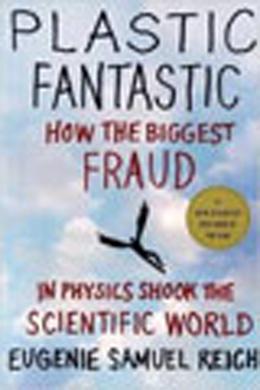
Plastic Fantastic: How the Biggest Fraud in Physics Shook the Scientific World by Eugenie Samuel Reich
This is one of my favorite research-related books. It’s about academic dishonesty—a case that actually happened. Recommended by Christoph Studer

Moneyball: The Art of Winning an Unfair Game by Michael Lewis
I'm not really a fan of baseball, but I just loved how the book reveals the inspired use of data mining in the process of building a winning sports team, which beats the old-school scouting by human experts. Less art, more science and automation! Recommended by Zhiru Zhang
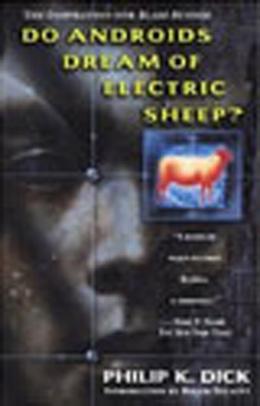
Do Androids Dream of Electric Sheep? is a book that most people think they remember and almost always get more or less wrong. Ridley Scott's film Blade Runner took a lot from it, and threw a lot away. Wonderful in itself, the film is a flash thriller, whereas Dick's novel is a sober meditation. As we all know, bounty hunter Rick Deckard is stalking a group of androids who have returned from space with short life spans and murder on their minds--where Scott's Deckard was Harrison Ford, Dick's is a financially strapped municipal employee with bills to pay and a depressed wife. In a world where most animals have died, and pet keeping is a social duty, he can only afford a robot imitation, unless he gets a big financial break. (Amazon.com review) Recommended by José Martínez

The Pentium Chronicles: The People, Passion, and Politics Behind Intel's Landmark Chips by Robert P. Colwell
The Pentium Chronicles describes the architecture and key decisions that shaped the P6, Intel's most successful chip to date. As author Robert Colwell recognizes, success is about learning from others, and Chronicles is filled with stories of ordinary, exceptional people as well as frank assessments of "oops" moments, leaving you with a better understanding of what it takes to create and grow a winning product. (Amazon.com review) Recommended by José Martínez
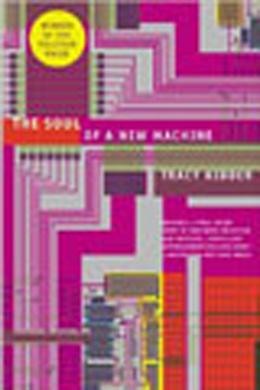
The Soul of A New Machine by Tracy Kidder
Computers have changed since 1981, when Tracy Kidder memorably recorded the drama, comedy, and excitement of one company's efforts to bring a new microcomputer to market. What has not changed is the feverish pace of the high-tech industry, the go-for-broke approach to business that has caused so many computer companies to win big (or go belly up), and the cult of pursuing mind-bending technological innovations. The Soul of a New Machine is an essential chapter in the history of the machine that revolutionized the world in the twentieth century. (Amazon.com review) Recommended by José Martínez

